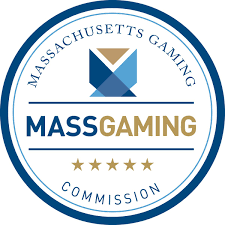Gambling regulators have the important task of preventing customers from being taken advantage of without over-regulating
Massachusetts authorities are considering new recommendations to restrict gambling advertising amid an increase in problem gambling. The rapid growth of the state’s gambling industry has, unfortunately, caused higher harm rates, sparking a need for improved safeguards.
While Massachusetts has been actively cracking down on misleading ads and trying to limit the frequency of advertising, proponents of new measures believe that more can be done.
The Massachusetts Gaming Commission’s (MGC) latest meeting saw researchers quote a recent study that outlines the new advertising agenda for the next fiscal year. As the fairly new online sports betting continues to grow, the state needs to do something about the abundance of ads, experts suggested.
A proposal by researcher Rachel Volberg suggested limiting advertising for higher-risk games, which are often associated with harm. She also proposed a limit on the promotion of gaming for specific purposes, such as good causes support. Overall, ads should not create a sense of urgency, be limited in value and not offered only to new customers, Volberg argued.
In line with measures in other regulated markets, Volberg proposed restricting ads that feature celebrities that could appeal to younger and high-risk players. Moreover, she proposed monitoring social media engagement.
The research pointed out that vice industry ads often emphasize the positive experiences of use, downplaying potential negative aspects.
Over the years, the MGC learned that problem gamblers are vulnerable to incentives, such as ads. However, ads are not the only source of inducement, since at-risk players may also be swayed by gambling coverage, communication from casino operators and targeted promotions.
As a result, implementing new rules on gambling ads is not so easy. The real challenge when regulating the industry is to protect players in a way that doesn’t push them into the much more dangerous unregulated market. Too many restrictions and players would just pick unlicensed operators instead, studies show.
Speaking of adverse effects, certain proposals, such as creating minimum periods of time over which someone could make bonus bets might instead extend consumers’ interaction with operators.
However, gambling regulators still have the important task of preventing customers from being taken advantage of. Volberg concluded that the MGC must be careful and avoid regulations that could possibly backfire and limit the intensity of ads in a reasonable way.
Additional ideas included an expanded online panel survey focusing on the wagering behavior of younger audiences, a reform of the state’s self-exclusion program and research into the frequency of advertising.








